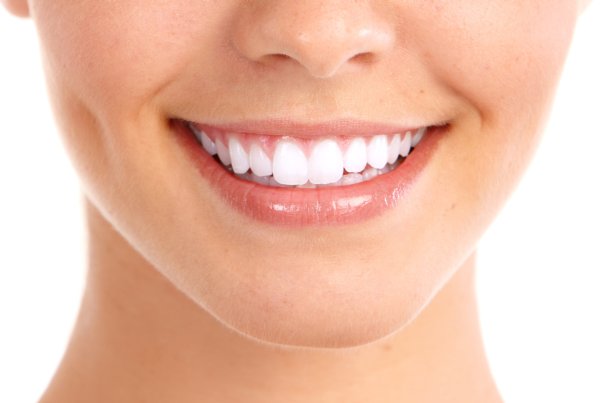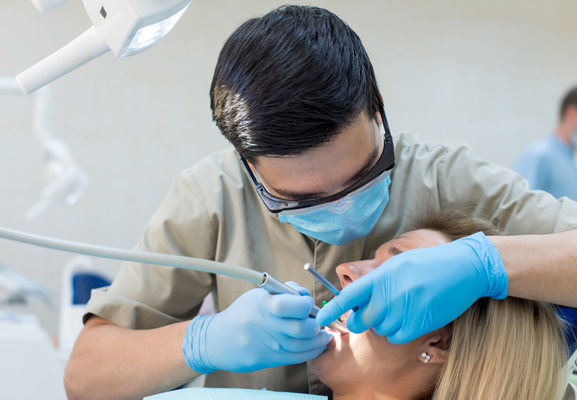What is Periodontics Treatment and How Can it Help Me?
 Our periodontics office can help if you are looking for a dentist who specializes in the prevention of periodontal disease and someone who is experienced in treatments that work to remove it. We can treat your oral inflammation, bleeding and receding gums, loose teeth, and below gum line infection among many other things. It is easy to become frustrated with periodontal disease, also known as gum disease, especially if you do not know why you have it and how you can prevent it. Throughout this article, we will discuss how gum disease develops and what we can do at home.
Our periodontics office can help if you are looking for a dentist who specializes in the prevention of periodontal disease and someone who is experienced in treatments that work to remove it. We can treat your oral inflammation, bleeding and receding gums, loose teeth, and below gum line infection among many other things. It is easy to become frustrated with periodontal disease, also known as gum disease, especially if you do not know why you have it and how you can prevent it. Throughout this article, we will discuss how gum disease develops and what we can do at home.
The Development of Gum Disease
There are numerous circumstances that contribute to gum disease. If you do not take good care of your teeth and gums, plaque and bacteria will develop. If simple plaque is not taken care of, it will begin to create a hard to remove version of itself called tartar. Tartar and bacteria growth work together to irritate and infect your gums, creating periodontal disease. Bad oral hygiene is most commonly to blame, but there are also other factors that could take part in the development. Some people have a genetic disposition to suffer from gum disease— genetic factors that contribute are diabetes, aging, puberty, pregnancy, autoimmune disorders, and anything that confuses your hormones. Some more controllable factors that cause gum disease are smoking, general tobacco use, not flossing or brushing thoroughly enough, or eating or drinking highly sugary or acidic substances on a frequent basis.
Gingivitis is the first and mildest form of gum disease to develop. If you have gingivitis, you may have swollen and bleeding gums. In most cases, at this stage, discomfort levels are low. You can easily get rid of gingivitis by improving home dental care and visiting our periodontics office for a deep cleaning
When not quickly treated, gingivitis can turn into periodontitis. At this stage, plaque and tartar have already begun developing below your gum line. You will notice irritation, discomfort, more bleeding, chronic inflammation, the beginnings of gum recession, and potentially loose teeth that will soon fall out without treatment. If you don't quickly rid your mouth of periodontitis, your gum tissues and bone tissues will begin breaking down and eventually fall out and virtually disintegrate.
Gum Disease Treatment
These symptoms and effects of gum disease may seem scary, but they can be treated by our periodontics office. You should come in immediately for diagnosis and treatment to slow the growth process. We can provide you with several treatments, the most commonly executed treatment being a scaling and root planing. During this process, we will carefully and thoroughly clean the surface of your teeth roots to remove tartar and bacteria. We may also administer medication that will help kill the infection. In most cases, this is the only treatment needed, especially for milder periodontitis. If there has already been significant damage to your dental structure, we can employ gum grafting, laser treatment, dental implants, and periodontal plastic surgery to restore your smile and the working order of your teeth.
We want to save your teeth and gums before they suffer from the detrimental effects of gum disease. Visit our periodontics office for thorough treatment and to lengthen the years of your teeth.
Recent Posts
Periodontic is a dental specialty that deals with diseases of the gums and the bones that sustain the teeth. This condition can affect your entire oral cavity and overall wellbeing. Periodontics care is necessary when something is wrong with the gums and other soft tissues.Gingivitis and periodontitis are the two prevalent types of periodontal diseases.…
Periodontics is a branch of dentistry that prioritizes issues that affect the gums and the bone structures that hold teeth in place. It also includes replacing missing teeth with restorations like implants. Periodontics favors implants because these are the only teeth replacement options that replace teeth roots. Other oral prosthetics, like dentures and bridges, only…
Periodontics is a broad term that encompasses a wide range of treatments and procedures related to periodontal, or gum, health. If a general dentist has diagnosed gum disease, they will recommend the proper treatment to restore the patient's gum health.Periodontal therapy may not always include surgery. For example, periodontic treatments like scaling and root planing…
Have you ever been let down by the quality of care you received during a dental visit? Unfortunately, this may be an experience for some patients who are seeking periodontics treatment. The good news is that there are ways to help ensure you choose the right dentist for your periodontics treatment needs.You can help ensure…
 Our
Our 
